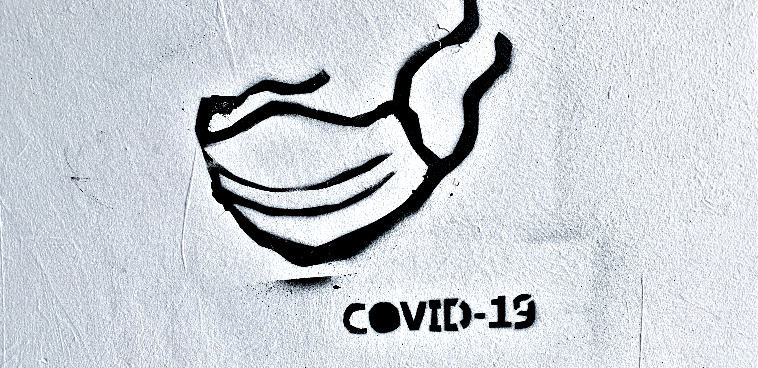Recently, nine members of our Trust Alliance, from four countries, convened for the first in a series of weekly Zoom “Lunch and Learns.” The discussion topic was “Trust Lessons from Coronavirus.”
The conversation ran the gamut from families to communities, and up the societal ladder to government and beyond. Let’s begin with trust lessons for the family and work our way up from there.
The family
The modern family operates differently than it did just a generation ago, when more mothers stayed home with their children. In my research I uncovered the following. As of 2018, 63% of US traditional nuclear families have two working parents. In 1989, the number was 53%. This represents close to a 19% increase.
Suddenly, both parents are home, with many working remotely, and their kids are also home with no school or child care options available. It’s certainly a shock and a “new reality” for many families. What does this have to do with trust? Just about everything.
Randy Conley of the Ken Blanchard Cos. spoke about benevolence and compassion as not only the launch pad for building greater trust, but also as the basis of the human fundamental connection. Working parents may want to consider using this “teaching” moment to build even stronger bonds with their children, who will then have an improved skill set to build trust with their friends, communities, teammates and beyond.
Parents may consider taking some of these lessons back to their jobs when they return. This could translate into higher levels of workplace trust and more trustworthy generations in the future.
The community
At the community level, Lea Brovedani is encouraged by how she sees people connecting, displaying tremendous empathy and generosity towards others by offering to help neighbors, joining together in fundraising for nurses and hospitals, and accepting “distancing” (and even washing hands) in the interests of protecting others. Both empathy and generosity build trust.
Darshan Kulkarni, our resident bioethicist, happens to live across the street from a hospital in a large US city. He is witnessing the virus from his window. He urges everyone in every community to take time to separate fact from fiction to get a better “feel” for what is going on and reduce fear and panic. Understanding that, while the political push and pull and the day-to-day Fox vs. CNN reporting may hurt trust in the short term, it’s now up to communities to pull together to ensure that trust is not eroded over the long term.
The workplace
David Belden, an organizational strategy consultant, discussed how the coronavirus will permanently change the way we work. He reminded us that, in many ways, the 2008 financial crisis taught companies how to be more productive with fewer employees. Twelve years later, many people are accustomed to working remotely.
Now, even more employees have joined those ranks. Will that continue after the coronavirus crisis subssides? Will employers become more efficient? Will trust flourish because in-person micromanagement is no longer an option? Perhaps output increases when time clocks no longer need to be punched.
Will home-based employees be more productive with less rules and restrictions? How about those organizations where remote teams have flourished for many years by using ever-improving technology to create a new form of teamwork and efficiency? Has their forward-thinking strategy built a stronger foundation of trust and a clear business advantage going forward?
Because companies have an opportunity to become even more efficient, will they share their wealth with employees? This is the perfect time for leaders to demonstrate support for workers through actions, not just words. Think “Purpose” with a capital “P.”
From Canada, Natalie Doyle Oldfield reminded us of how trust builds business relationships internally with employees and externally with customers and suppliers. At Trust Across America-Trust Around the World, we call that the trust “bank account.” Whether an entrepreneur, a small-business owner or the CEO of a multinational company, the bigger that trust account is before a crisis, the more stakeholders will remain loyal during the crisis and the faster the post-crisis recovery will be.
Mark Donohue, founder of LifeGuides, presented another point of view expressing concerns that working from home will be isolating while social connections disintegrate. He shared that 43% of the US workforce already works remotely at least some of the time (2016 data from Gallup).
Perhaps the time has come, or is past due, to redesign support systems that not only build trust between employers and employees, but also offer better benefits including counseling services during times of isolation and/or personal crisis.
The last few minutes of the conversation turned to the shared global level of accountability, empathy, compassion and benevolence that has been so apparent over the past several weeks. If we can maintain these basic human behaviors when the coronavirus crisis subsides, societal trust will certainly be stronger.
In closing, Belden pointed out that the Latinized form of the Greek word for crisis (krisis) means “turning point.” Coronavirus is already moving the world in the direction of increasing empathy, compassion and benevolence. And as Donohue says, the nature of trust is built on the “golden rule” — perhaps the most important reminder during these challenging times.
Barbara Brooks Kimmel is the founder of Trust Across America-Trust Around the World, whose mission is to help organizations build trust. Now in its 11th year, the program has developed two proprietary trust-evaluation tools. She also runs the world largest global Trust Alliance and is the editor of the award-winning TRUST INC. book series. Kimmel is a former consultant to McKinsey who has worked across industries and with many Fortune 500 CEOs. She holds a bachelor’s in international affairs from Lafayette College and an MBA in marketing from Baruch.
If you enjoyed this article, sign up for SmartBrief’s free e-mails on leadership, career growth and HR, among SmartBrief’s more than 200 industry-focused newsletters.
